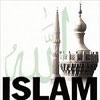
One of the distinctive features of Islam is its emphasis on knowledge. The Quran and the Islamic tradition (sunnah) invite Muslims to seek and acquire knowledge and wisdom and to hold men of knowledge in high esteem.
In the Holy Quran the word al-Ilm, knowledge, and its derivatives are used more than 780 times. The first few verses that were revealed to our Holy Prophet (S.A.W) mention the importance of reading, pen, and teaching for human beings:
Read: in the name of your Lord who created. He created man from something which clings. Read and your Lord is the most generous. Who taught with pen? Taught man what he knew not..." (96:1-5)
In the Islamic traditions, too, there are many words of praise for knowledge and the learned.
Traditions attributed to the Holy Prophet (S.A.W) in this regard, some of which are quoted below:
It is an obligation for every Muslim to seek knowledge.
Seek knowledge even if it be in China.
Seek knowledge from cradle to grave.
Scholars are the heirs of the prophets.
The ink of the learned will be weighed with the blood of the martyrs on the Resurrection Day; and then, the ink of the learned would be preferred to the blood of the martyrs.
Anyone who pursues a course in search of knowledge, God will ease his way to paradise.
The most learned of men is the one who gathers knowledge from others on his own; the most worthy of men is the most knowing and the meanest is the most ignorant.
Acquire knowledge, it enables its possessor to distinguish right from wrong; it lights the way to heaven.
Some Wise Sayings of Imam Ali (A.S) in this regard, which are quoted below:
O you who carry knowledge around with you; are you only carrying it around with you? For surely knowledge belongs to whoever knows and then acts accordingly, so that his action corresponds to his knowledge. There will be a people who will carry knowledge around with them, but it will not pass beyond their shoulders. Their inner most thoughts will contradict what they display in public and their actions will contradict what they know.
Do not turn your knowledge into ignorance and your surety into doubt. When you acquire knowledge then act in accordance with it and when you achieve surety then proceed with it.
Knowledge is accompanied by action. Thus he who knows acts in accordance with it. Knowledge is called through action. Thus if called it responds and if left uncalled it leaves.
The lowest form of knowledge is the one which (only) appears upon the tongue while the loftiest is the one made manifest by the organs and the limbs.
Verbal Knowledge is of the least value, while practical knowledge is of the highest.
The most complete gift of God is a life based on knowledge.
Knowledge gives life to the soul. Knowledge creates fear of God.
Practice makes knowledge perfect.
The one who engages in business without knowledge of its laws is inevitably dragged into usury.
Two types of people will never be satiated, the seeker of knowledge and the seeker of this world.
The best companion is satisfaction while knowledge is a noble heritage. Good morals are renewable garments and thought is a clear mirror.
There is no virtue in your possession of excessive wealth and offspring rather virtue and merit are (awarded) by greater knowledge and insistence and by your devotion to your Lord.
When a dead person is placed in his grave, four kinds of fire will cover him, but then the prayer will come and put one of them out, and the fast will come and put another one of them out, and then charity will come and put another one out, and knowledge will come and put the forth one out, and it will say: If I had come sooner, I would a have put all of them out, and given you delight for I am with you now, and you'll not see anything else distressing.
When Allah wishes to humiliate a person He prevents him from gaining knowledge.
Knowledge is better than Wealth because of the following seven reasons:
Knowledge is inheritance of Prophets while wealth is inheritance of Pharaohs (Firauns).
Knowledge does not diminish (rather increases) with spending, while wealth diminishes with spending.
Wealth requires to be protected, while knowledge protects its owner.
Knowledge will enter the Shroud (Kafan) while wealth will be prevented from doing so.
Wealth reaches both believers and unbelievers (Kafir), while knowledge is reserved only for those who are worthy of it.
Knowledge will facilitate passing over the Seraat (Bridge over Hell) while wealth will pore hurdles.
People are always in need of scholars while they might not be in need of those possessing wealth.
The only limit set to the acquisition of knowledge in Islam is that Muslims should seek useful knowledge. Our great Prophet (S.A.W) is reported as having said:
My Lord, save me from the useless knowledge.
Any knowledge helping man in performing his God assigned role in this world is useful, other than that is considered useless knowledge.
source : sibtayn













